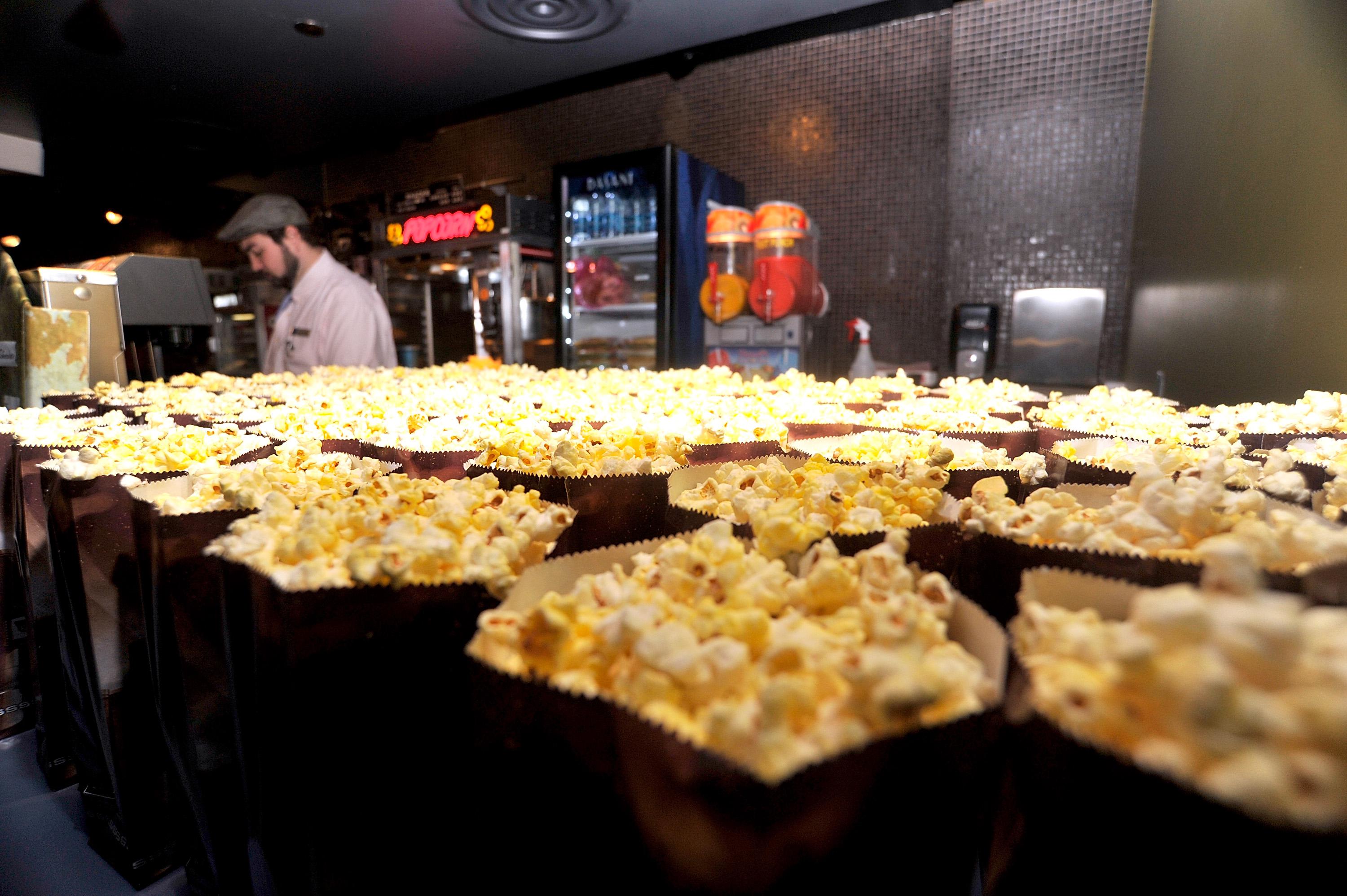I would like to raise a glass of butter-flavored popcorn topping to Joshua Thompson. The Detroit Free Press reports that the Michigan man has sued AMC theaters for overcharging on concessions:
On Dec. 26, he paid $8 for a Coke and a package of Goobers chocolate-covered peanuts at the Livonia theater—nearly three times the $2.73 he paid for the same items at a nearby fast-food restaurant and drug store, the suit said.
The suit accused AMC theaters of violating the Michigan Consumer Protection Act by charging grossly excessive prices for snacks.
The suit seeks refunds for customers who were overcharged, a civil penalty against the theater chain and any other relief Judge Kathleen Macdonald might grant.
I spent four of my teenage years, from 1999 to 2003, working at a five-screen movie theater outside of Philadelphia. There were many perks to such a gig: free movies, fun co-workers, long stretches of quiet time on after-school shifts during which I could do homework, plus all the popcorn I could eat—or haul home in an enormous yellow trash bag. And what teenage girl doesn’t love a clip-on bowtie? (Oh right, all of them.)
But all was not sweet at the concession stand. As anyone who has worked a service job knows, customers who think they are overpaying can be obnoxious—especially when they are right. People would order cavalierly, not even glancing at the menu, piling on candies and microwave hot dogs and popcorn and Icees and freezer-burned ice cream, only to be shocked—shocked—by costs that could total $50 or more. And the solution to this financial injustice is, of course, to berate the teenager in the bowtie making little more than minimum wage—which, per hour, was about the cost of a jumbo-size bucket of popcorn—to fork over the junk food.
Those endless complaints were easily the second-worst part of the job. The worst part? When we ran out of popcorn entirely, which, in my four years, happened twice: once on New Year’s Day (when many a hung-over parent takes his children to the movies in hopes of some darkness and relative quiet) and once over the Fourth of July weekend. Both times, employees were dispatched by bicycle and by car to locate all the kernels that could be found in area supermarkets, but there simply were not enough to keep our poppers full—and many customers left the theater rather than take in a movie without the requisite salty treat. (So, if you’re keeping score: Customers were angry when they bought the popcorn, livid when they could not do so.)
Attorneys consulted by the Detroit Free Press say that Thompson’s suit is without merit, and I’ve no doubt they are correct. Moreover, the situation seems unlikely to change; the movie-theater business has struggled mightily in recent years, and the cliché is correct: Concessions are where the profit is. But I nevertheless feel sympathy for his cause, if only because reasonable prices might have made my attempts to save up for college a bit more bearable.
And on those rare times when I turn off Netflix and wander into a real live theater to be entertained, I do head for the concession stand (albeit with a soda hidden in my purse). Like the customers I encountered as a kid, the ones who left the movies rather than go without popcorn, the concessions have become a vital part of the experience for me, flavored with nostalgia. (And if you’re wondering about that “butter”: In my time, at least, it was mostly canola oil, a congealed mess at room temperature. I still get it on my popcorn every time.)
